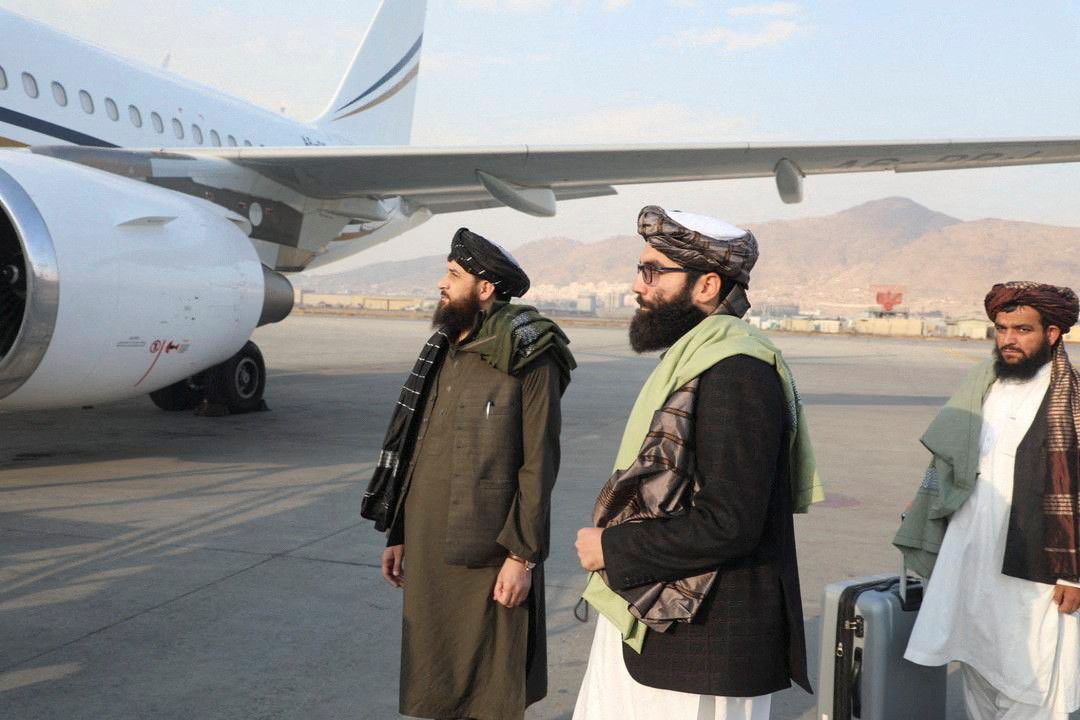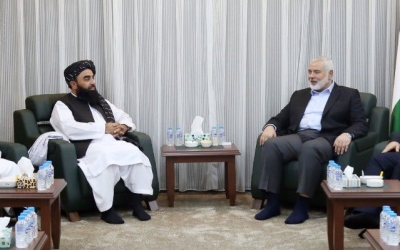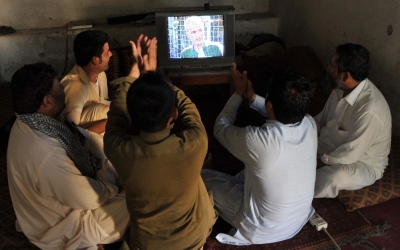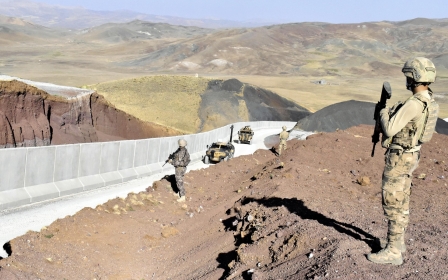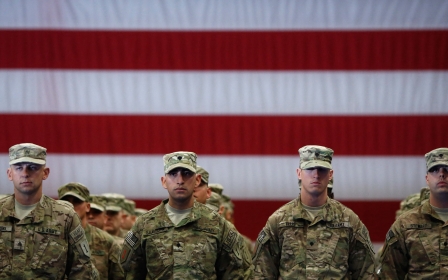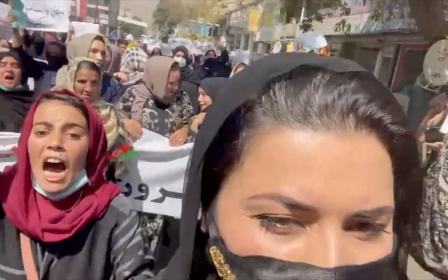Afghanistan: Taliban court MBZ as they seek UAE recognition
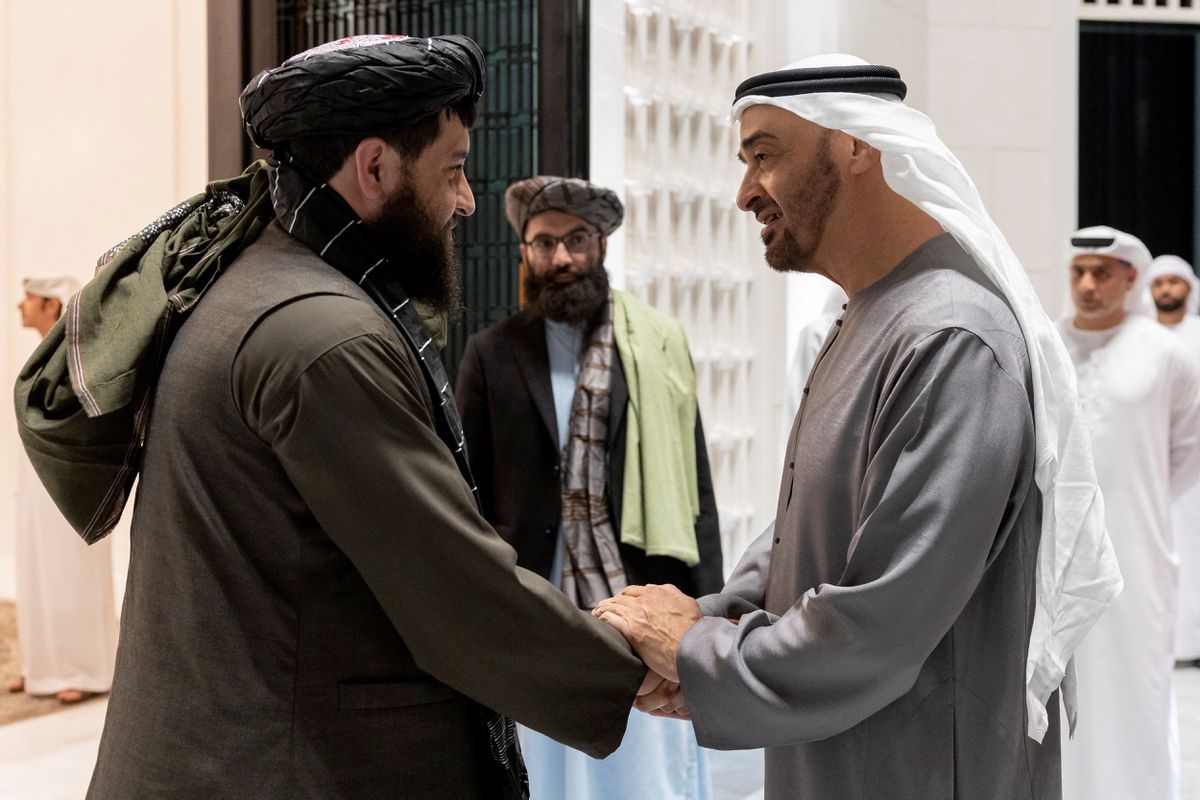
A delegation from the Taliban’s Islamic Emirate government headed to the United Arab Emirates on Sunday, where they met its president, Mohammed bin Zayed.
According to a statement from the Afghan defence ministry, the parties held talks on “strengthening relations, bilateral cooperation between the UAE and Afghanistan and other important issues”.
No further details of the meeting were made public, but the symbolism of the visit, which ends on Tuesday, was not lost on Afghans in either country.
Though Taliban officials have travelled abroad to Norway, Qatar and most recently Turkey, this marks the first time the Islamic Emirate has met directly with Mohammed bin Zayed, the ruler of Abu Dhabi, sometimes known as MBZ, whom sources say is very close to former Afghan President Ashraf Ghani.
The fact that the delegation was led by acting defence minister, Mawlawi Mohammad Yaqoub Mujahid, the son of the founder of the Taliban movement Mullah Mohammad Omar, is seen by some as proof that the 32-year-old is hoping to play a role in projecting a more measured image of the Islamic Emirate.
Since being named acting defence minister, Yaqoub has made several public statements calling for moderation among the Islamic Emirate’s forces. He has also accused unnamed outside interlopers of trying to sully the name of the Taliban by posing as members of the group and harassing or abusing civilians.
Yaqoub was accompanied by Anas Haqqani, who is also seen as a relatively moderate voice among the Islamic Emirate, though he has no official title in the government.
At 28, Haqqani bills himself as a poet and is seen as much more approachable than his brother, Sirajuddin, who serves as the acting interior minister, and his uncle, Khalil, acting minister of refugees and repatriation. Haqqani also has a bit of a local advantage, as his father’s second wife is from the UAE.
Gulf diplomacy
Of course, there are those Afghanistan watchers who will wonder what signal this meeting will send to officials in Qatar, a one-time rival of the UAE that now serves as Washington’s intermediary with the Islamic Emirate.
Faiz Zaland, a professor and analyst based in Kabul, says “it is certainly a big deal” that Yaqoub and Haqqani were able to secure an audience with the UAE leader directly.
In the year and a half since the Taliban returned to power in Afghanistan, several of their representatives have made official and unofficial visits to the UAE, but Sunday’s meeting marks their first publicly acknowledged interaction with top leadership in the UAE.
Zaland told Middle East Eye that the Islamic Emirate’s efforts to get close to both Abu Dhabi and Doha will be “quite the balancing act”, and that it will require serious diplomacy.
Taliban representatives, including Haqqani, have been based in Doha since at least 2011, when former US President Barack Obama and his then Afghan counterpart, Hamid Karzai, were hoping to engage in peace talks with the Taliban.
Zaland said that the Qataris have “stood by the Taliban in their worst times”, something they should not forget in their bid to get closer to the UAE.
However, there have been signs of strain between Doha and the Taliban for nearly a year now. In autumn 2021, sources in Doha told MEE that they were disappointed that the Taliban were not listening to them on several issues. Around the same time, the Qatari foreign minister gave an address in which he criticised the Islamic emirate for barring women from most government jobs.
Then, in September, the Taliban secured a deal with Abu Dhabi to have an Emirati company run Afghanistan’s international airports.
Sources in Doha, Dubai and Kabul said the deal came after a months-long stalemate between the Taliban, Qatar and Turkey. Doha and Ankara had been trying to work out an agreement to run the airports with the Taliban since shortly after the group returned to power in late summer 2021.
The sources said that Kabul and Doha could not agree on financial and security terms, and the Taliban eventually turned to the UAE, which previously had a deal to help run airports in Afghanistan under the western-backed government.
Mutual security interests
Though Zaland says it is now up to the Islamic Emirate to find a responsible way to court both Doha and Abu Dhabi, other analysts do not believe it is as risky for the Taliban as it may appear.
Asadullah Nadim, a security analyst based in Kabul, said people must remember that Qatar and the UAE have mutual security interests, especially in terms anti-terrorism efforts. Since Afghanistan is still home to forces claiming allegiance to the Islamic State group (IS), Mohammed bin Zayed’s meeting with Yaqoub, whose job it is to secure Afghanistan from groups like IS, may not be as controversial to Doha as it seems.
'The Islamic Emirate focusing on the UAE has as much to do with economics as it does politics'
- Asadullah Nadim, security analyst
Additionally, Nadim points out that the UAE, especially Abu Dhabi, is home to a powerful bloc of Afghan businesspeople and investors, whom the Islamic Emirate is hoping to court at a time when their government is suffering from sanctions, aid cutbacks and banking restrictions imposed by the US and other western powers.
“The Islamic Emirate focusing on the UAE has as much to do with economics as it does politics,” Nadim said.
It is believed that Afghan entrepreneurs and investors collectively have access to $100m in the UAE, said Nadim.
This interest in encouraging Afghans in the UAE to reinvest in Afghanistan was made clear when the delegation spoke to a group of Afghan investors in the Emirates and asked them to start doing business in their country once again.
During that event, Yaqoub said 300,000 Afghans are currently working in the UAE. In places like the eastern province of Khost, the remittances sent home by those Afghan workers have been key to the local economy.
As for politics, Nadim notes the leaderships of the last three governments in Afghanistan, including the Taliban, all have strong networks in the UAE.
“Dating back to Karzai, Afghan leaders have always had strong ties to the UAE,” says Nadim, noting members of Karzai’s family have homes in Dubai.
Likewise, Ghani fled Afghanistan for Abu Dhabi, where he is currently residing in a well-guarded villa.
Indian media and Afghans on social media claimed the Taliban officials would meet Ghani while in the UAE, but sources familiar with the situation dismissed those reports as conjecture.
Nadim believes the trip was ultimately meant to court Emirati leaders, whom the Taliban hope could be persuaded into acknowledging their government as the official leaders of Afghanistan.
Though in the 1990s, the UAE was one of three countries (the others being Pakistan and Saudi Arabia) to recognise the Taliban government. This time no other country has officially acknowledged the Islamic Emirate.
Ultimately, Nadim says the Taliban “need to strengthen ties with as many countries as they can”, and given its proximity and ties to Afghanistan, the UAE is a very good place to start.
Middle East Eye propose une couverture et une analyse indépendantes et incomparables du Moyen-Orient, de l’Afrique du Nord et d’autres régions du monde. Pour en savoir plus sur la reprise de ce contenu et les frais qui s’appliquent, veuillez remplir ce formulaire [en anglais]. Pour en savoir plus sur MEE, cliquez ici [en anglais].


